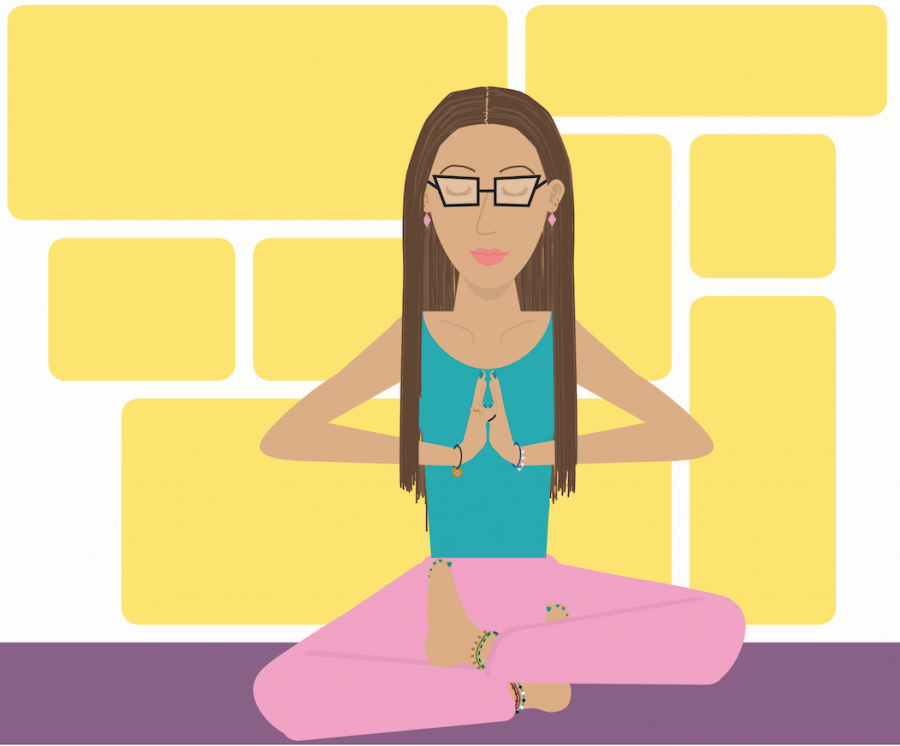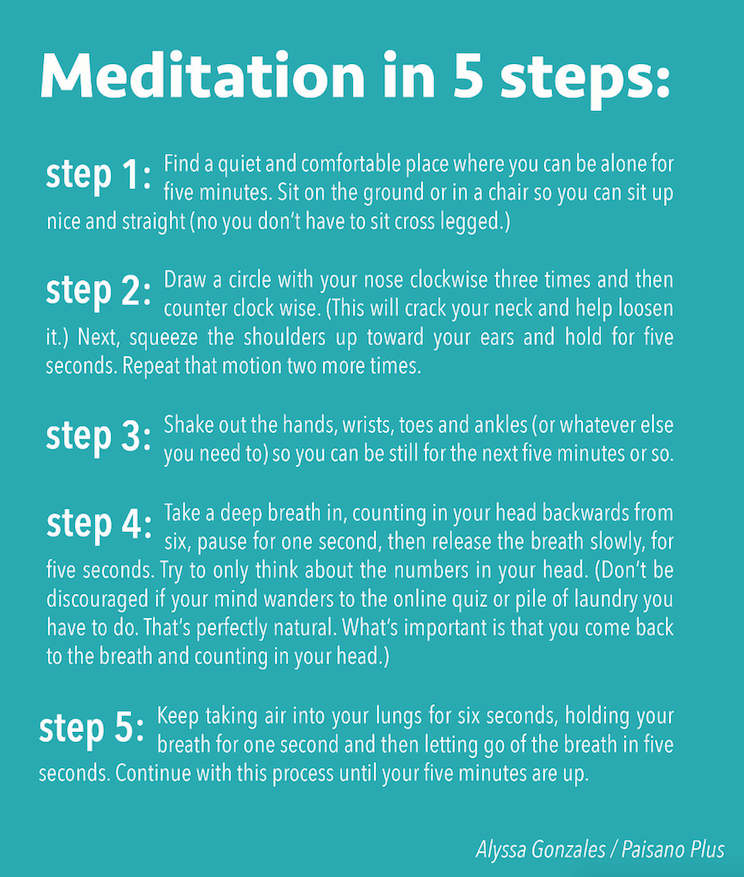At one point or another, everyone has heard that meditation is good for emotional and mental health. Whether it’s from an Instagram post of a girl on the beach or from the weird spiritual guru in the latest cinematic comedy, meditation has gotten a bad street name.
If you google “benefits of meditation” you get a list of blogs talking about how meditation saved someone from a gamut of problems: anxiety to insomnia to back pain to self-esteem issues.
Without a well trained eye, it appear meditation does everything except cure cancer and end world hunger; however, there is scientific evidence that mediation does in fact help ease the symptoms of anxiety, depression and stress.
In an article published in The American Journal of Psychiatry, scientists concluded that a “group stress reduction program based on mindfulness meditation” effectively reduced the symptoms of anxiety and panic disorders. A similar study in Science Daily found that mindfulness and meditative breathing reduces the likelihood of adolescents suffering from depression and depression like symptoms.
Meditation has also been attributed to significantly helping individuals remain focused over long periods of time, work more effectively under stress and improving decision making skills.
An article in Time Magazine cited a few articles that compared meditation to working out, but for your brain. The more you train and exercise your brain, the more control you have over it and the healthier it is.
Big businesses and corporations are even offering meditation and yoga to their employees. Apple, Google, Nike, Yahoo! and HBO are just a few that offer “relaxation rooms” and “quiet time” to their employees.
What’s innovative is that the employees don’t even have to leave the office. There are designated times and rooms where employees can go to escape the stress by praying, meditating or simply enjoying the silence.
These companies even offer gyms which have optional guided yoga and meditation sessions, along with other group exercises. The motivation being that the happier and less stressed workers are, the more productive and better their work will be.
Google has taken it a step further, having a position utterly focused on catering to employees well-being. Chade-Meng Tan, head of personal growth, launched a “Search Inside Yourself” program in 2007, dedicated to teaching employees how to breathe mindfully, improving communication between colleagues and even growing emotional intelligence.
So, if Corporate America is buying into mindfulness, should we?
Absolutely. The fact of the matter is that you don’t need a head of personal growth, a monk or a super bendy beach bum to teach you how to meditate. You don’t have to join a gym or subscribe to a daily spiritual newsletter. The beauty of meditation is its simplicity.
I know the self-help section of Barnes and Noble is beyond intimidating, and that a week long Costa Rican retreat isn’t exactly realistic. I also know that “quieting your mind” and finding “inner peace” doesn’t make much sense.
Scrolling through the App Store you can find apps that make meditation even more accessible to the average stressed out college student. Stop, Think & Breathe is one free app in particular for beginners. The app gives you access to over 20 guided meditation sessions that range from five minutes to an hour.
The topics range from depression, to empathy, to calmness and more. The app allows the user to “check in” and define how he or she is feeling mentally, physically and then pick five emotions that fits their current state. Finally, the app tracks the total number of minutes the user has meditated.
Even if the idea of meditation sounds a bit too granola, think of it as learning new breathing techniques. When a person breathes slowly, he or she is able to calm their sympathetic and parasympathetic nervous system. Meaning that signals are being sent to the brain that everything is okay. When the breath is steady and full and the heart rate is low, the body is able to calm down.
This is important because that can help ground or anchor someone to reality in moments of stress. Being aware of how to breathe in a manner that calms the body can significantly reduce feelings of stress.
Additionally, it gives people the power of recognition. With the help of the app, an individual can check in and see if they’re anxious, worried, fatigued, elated and otherwise. Eventually, this self-awareness will come naturally— an almost magical feeling.
In the abstract, this all seems overwhelming and a bit silly. However, the mind is powerful and people doubt what it can do. Give meditation a shot, there’s not much to lose.
To help you get started, UTSA Counseling Services offers guided meditation sessions on Wednesday’s from 5:00 p.m. to 6:00 p.m.
Spotify also has a guided meditation station for users to listen to and follow along.


